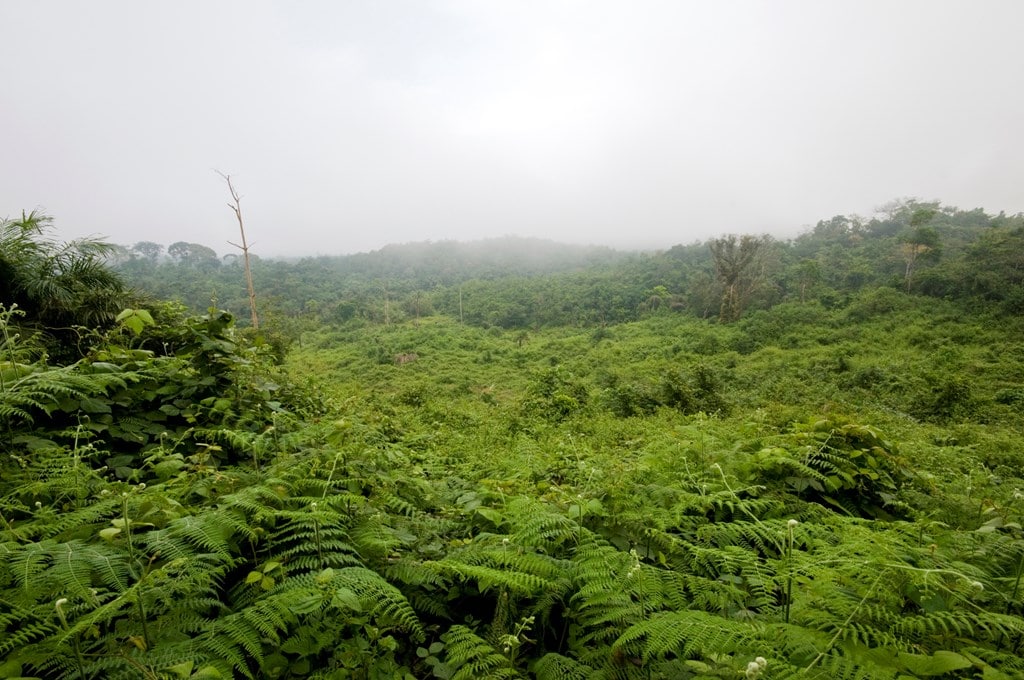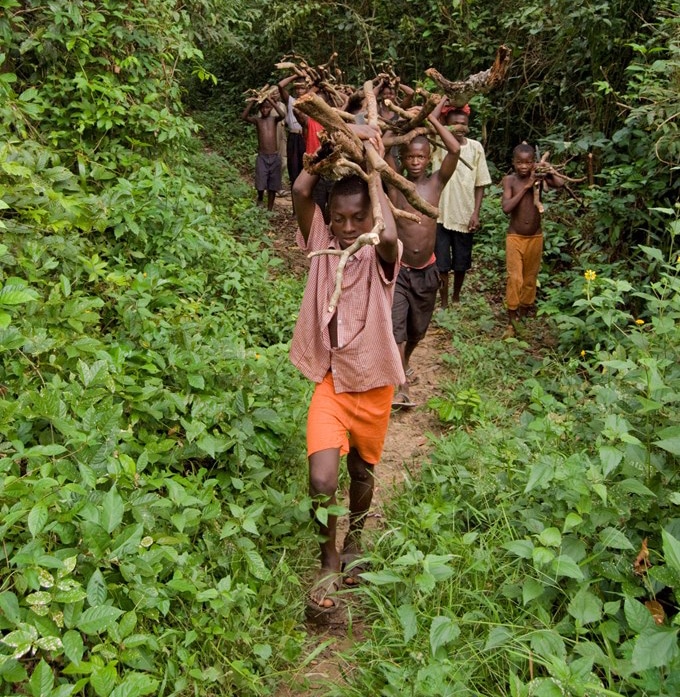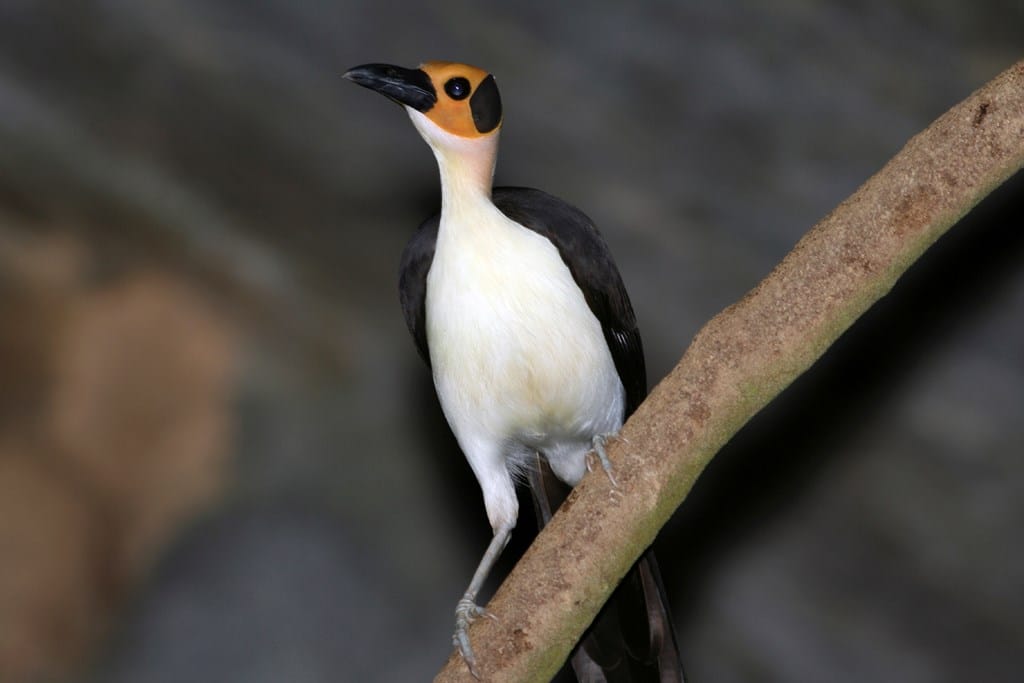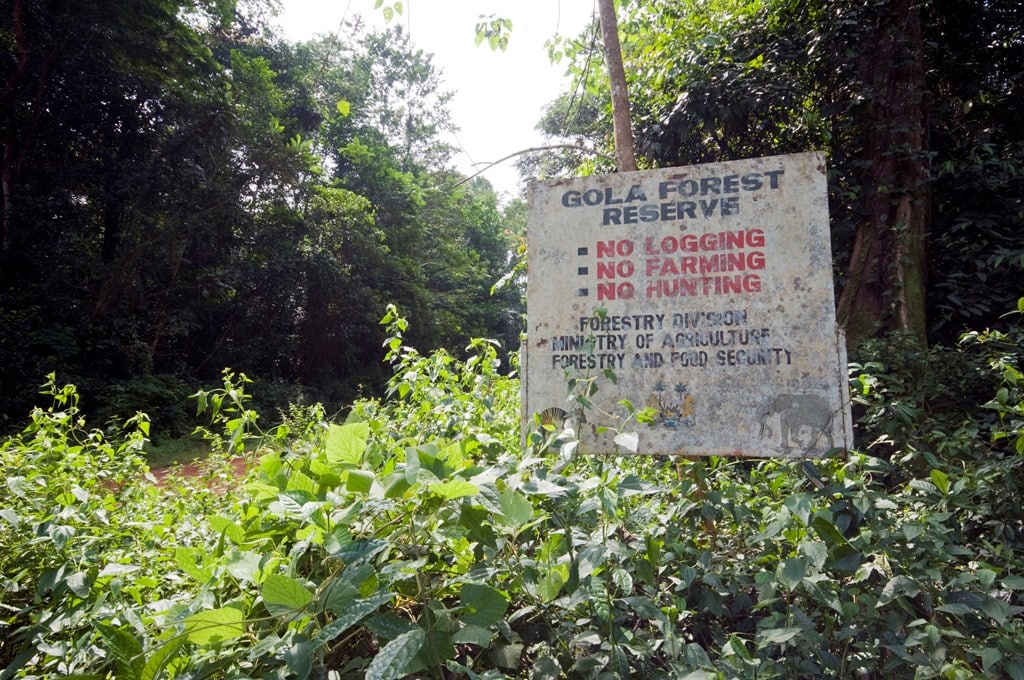Advancing forest conservation in West Africa through the PAPFOR Project

In August 2020, the European Commission-funded Programme to Support the Conservation of Forest Ecosystems in West Africa (PAPFoR) was rolled out in Sierra Leone and Liberia to conserve the Gola Forest. In Sierra Leone, the three year programme is being implemented by the Conservation Society of Sierra Leone (CSSL), BirdLife Partner. Alice Kofi Asare Communication Officer, for the CSSL PAPFoR project sat down with Madam Musu Massaquoi, a 46 year old farmer from the Small Bo, Chiefdom, Kambui Hills Reserves, one of the areas where the project is being carried out.
By Alice Kofi-Asare
Alice Kofi – Asare (CSSL): Thank you Madam Musu for honoring the request to talk to us about the PAPFoR project. Now tell me, what do you know about the project?
Musu Massaquoi : The first thing I know about the project is that it is under the Conservation Society for Sierra Leone (CSSL), aimed at conserving and protecting Kambui Hills landscape including the Kambui forests. PAPFoR is being implemented in two forest landscapes, Kambui and Gola Landscapes. In our area (Kambui) CSSL is the sole implementer of PAPFoR, but in the Gola Landcsape, CSSL is co[1]implementing the project with the Gola Forest. In 2020, before Christmas, the PAPFoR team held a roadshow in our area, where it highlighted conservation, how to protect our forests and subsequent benefits for us as community members. This was very interesting and informative.
ALICE: Have you been involved with the project?
MUSU: Yes, on various occasions. Before the roadshow, the CSSL team came here and carried out a community assessment exercise. After this exercise, I was invited to go to a meeting in the local school, where l learned that there is an aspect of the project that is going to be working with the school and the children through nature clubs. 20 pupils were selected from our school to form the nature club.We also learnt a lot about our environment, how to protect ourselves and our communities from self[1]inflicted disasters. We learnt that by destroying the forest, it is us, the local community who suffer.
ALICE: What is the role of these pupils in the project?
MUSU: According to the project, the children take part in environmental education activities like talking on the radio to encourage other children to love nature, forest walks, field trips and they will even take them to the forest to see how beautiful nature is. So that when the children become adults in the near future, they will embrace conservation, and not engage in activities that harm the environment including the forest
ALICE: What other activity have you been part of, and what have you learnt from the project so far?
MUSU: In one of the meetings I learnt that the project would use forest guards drawn from the local communities, to protect the forest from invaders. Through this, we are happy that our brothers have gotten jobs as a result of the project. Further, we were assured that though these guards are in place, we would not be stopped from accessing the forest. The project would with us, teaching us how to benefit from the forest resource, without destroying it, for the sake of future generations. This has been pleasant for us, because when we first heard about forest conservation,we were scared, as we were told that if you near the forest you are going to prison, but our fears are being allayed with the frequent engagement and how things are done.
ALICE: How has the project benefited the community so far?
MUSU: We have learnt a lot. We now know that protecting the forest has important benefits apart from burning charcoal and hunting, mining or logging. Through local engagements and education, we now know that we are dependent on the forest for everything. Even the clean water that running from our taps is due to the forest; our communities are protected from rain storms because the forest covers our community. We just hear about those calamities from other communities without forests. On the International Forest Day 2021, officials who came to celebrate the day emphasized the importance of taking care of the forest. We have greatly benefited from the project’s awareness creation on the forest, and the education we have gotten in this short period will help us to be wise, instead of being ignorant, just thinking about how to get money and eat food, forgetting our wellbeing today and our children tomorrow.
ALICE: Do you have questions you may like to ask about the project discuss
MUSU: I have a number of questions, the main one being about our livelihood. During the Forest Day Celebrations, we were told that forest conservation goes with livelihood support. How will the project support our livelihoods? I am a farmer, I burn charcoal from the farm and sell to buy food, I am willing to stop in order to protect the forest, but I need to engage in other activity that can put food on my table. Secondly, is the project going to conserve the whole forest, or will it leave a portion for the local community to depend on? Thirdly, we heard that the communities in Gola Land are now enjoying benefits like scholarship for their children, money for their women to do business, farming tools and seeds and even money for community development like the construction of schools and clinics. Does the PAPFoR project have similar plans for us? Also, we want to have photos of animals that we can hunt and eat and those that are protected so we cannot fall short because the NPAA guards are very disturbing even squirrels we cannot catch so let us have those photos like we heard that it is done in Gola. We would also want the PAPFoR project to do a survey for us so that we can know how big the Kambui is. We heard they did it in Gola land.
ALICE: Parting shot
MUSU: Well just to thank the PAPFoR project for the enlightenment. Our community is poor and vulnerable, and that is why we engage in some of the activities like timber processing and mining. I am optimistic that the project will help us as we improve our livelihoods, and conserve the forest that we depend on, for the benefit of nature and the whole community.
The EU PAPFoR Programme is supported by the European Commission






